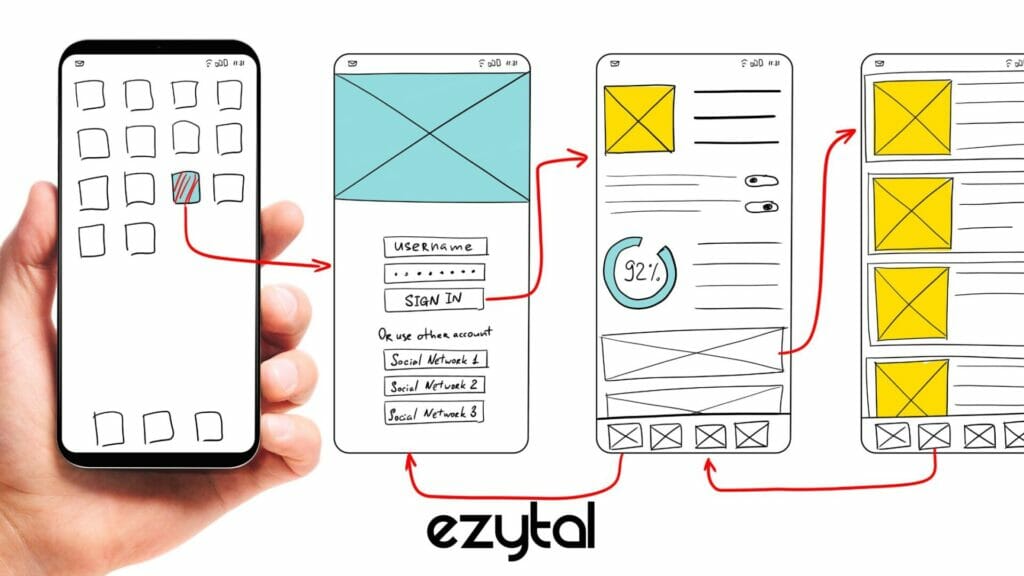How to develop a mobile application for your e-commerce business
The mobile application market is growing at an unprecedented rate. There are now over two billion active app users, and that number is only expected to rise. If you have an eCommerce business, developing a mobile app can be a great way to reach new customers and boost your sales. But where do you start? Building a mobile app can seem like a daunting task, but it doesn’t have to be. With the right planning and execution, you can have a successful app up and running in no time. Here are a few tips to help you get started: 1. Define your goals. What do you want your app to achieve? More sales, more engagement with your brand, or something else entirely? Knowing your goals will help you determine the features and functionality your app will need. 2. Do your research. Take some time to research the competition and see what other eCommerce apps are doing well. 3. Talk to your developer. Get a developer’s view on what it will take to build the app and what you should be thinking about. Your developer will be able to help you define your goals and come up with a strategy that’s realistic. 4. Decide on a development platform. There are several platforms (iOS, Android, Windows) for which you can build an app. Consider which one or ones to target based on the platform of your current customers and your ability to manage multiple versions of the app. Also, consider whether you want to build a native app (developed using the platform’s programming language) or a hybrid app (developed using web technologies and wrapped in a native shell). 5. Choose how you want the app to look and function. Once you’ve decided on your platform, you’ll work with a designer to specify the design and user experience of the app. A good developer will also provide recommendations and guidance here. 6. Set a timeline. Depending on the complexity of your app, you should be able to launch an MVP (minimum viable product) within a few months. 7. Build an MVP. This initial version of the app will allow you to validate some of your ideas and ensure that customers are using the app as you’d expect. It doesn’t need to include all of the bells and whistles. 8. Test the app. You’ll need to test the app with users from your target audience to ensure it’s easy to use and meets users’ needs. 9. Analyze results. Did users engage with the app as you expected? Were there other features you planned to include in the app that didn’t get enough attention? 10. Revise the app based on testing results. Just like with any other software, an app needs maintenance. However, don’t rush to make big changes before launching new versions of the app. Instead, study results and make gradual incremental changes. Also, consider using a/b testing to determine the effectiveness of changes. 11. Publish the app. Once you’ve finalized the version of the app, submit it to the relevant app stores. 12. Monitor the app. After launching the app, monitor how customers are using it and how the app is functioning. 13. Make changes based on monitoring results. Similar to the steps you took while developing the app, you should take careful steps to make sure you don’t rush to make big changes before you understand the impact on your customers and bottom line. Instead, consider a/b testing for incremental improvements. 14. Make the app a permanent feature of your website. If the app is proving to be a success, consider making it a permanent feature of your website. This will require additional development work. 15 . Promote the app. There is a lot of competition in mobile app stores, so you’ll need to promote the app to drive traffic to it. This may include paid advertising as well as social media promotion. How much does it cost to develop a mobile application? This is often a misconception that an app needs to be built from the ground up. But, you can also “re-skin” or “hire an app developer to modify an existing app” an existing app if your budget is limited. An experienced software developer can help you choose the appropriate tools to meet your needs and adjust the look and feel of an existing app or build an app from scratch. That being said, the average cost to develop a mobile app is $354,000, according to AnalyticsHobbyist. However, this number varies based on the size of your organization, the number of apps you plan to develop, and the features of the app. An app developer can help you determine if building an app in-house, using a freelancer, or an agency is the most cost-effective solution for your budget and goals. How to hire a mobile application developer for your business? So you’ve determined that a mobile app is a good fit for your business. Now how do you find and hire the right developer? If you’re considering a freelancer, check their past work and make sure the projects were completed on time and within budget. Ratings and reviews can also provide insight into whether the developer is a good fit for you. When hiring an agency, make sure to do your research. The agency should have experience developing apps for businesses similar to yours. Ratings and reviews also provide insight into whether the agency is a good fit for you. You may consider incorporating the cost of the developer or the agency into your overall business strategy. For example, you can reduce your startup costs by outsourcing development or by including marketing and design tasks in your project. This will also help you identify providers who are willing to work within your budget, which is a positive from a risk perspective. We at ezytal provide custom app development like e-commerce and business apps in India. We have our office at Bhubaneswar, Odisha. Do connect with us.
How to develop a mobile application for your e-commerce business Read More »


